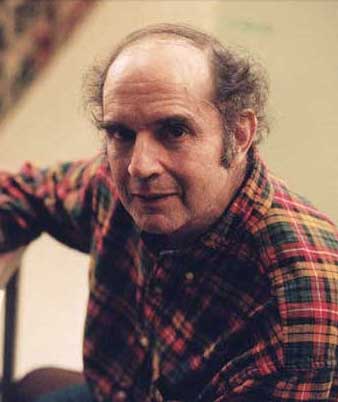Some words for Harvey Pekar
13.07.10
 It seems like every time I go to write something for the magazine these days it’s because somebody died. Today (6/13) George Steinbrenner died and in papers and columns and Web sites everywhere, people are eulogizing him and talking about what a great guy he was, how he built the Yankees into a winning team, which I suppose when you’re willing to go to any lengths to build a winning team (read: spend any amount of money… kind of like the Miami Heat are trying to do now), then you’re bound to hit the jackpot at some point. It’s surprising to me how lionized he is now that he’s dead, for some reason I was under the impression (probably due to watching too much Seinfeld when I was younger) that everybody hated that guy. I guess I was wrong about that.
It seems like every time I go to write something for the magazine these days it’s because somebody died. Today (6/13) George Steinbrenner died and in papers and columns and Web sites everywhere, people are eulogizing him and talking about what a great guy he was, how he built the Yankees into a winning team, which I suppose when you’re willing to go to any lengths to build a winning team (read: spend any amount of money… kind of like the Miami Heat are trying to do now), then you’re bound to hit the jackpot at some point. It’s surprising to me how lionized he is now that he’s dead, for some reason I was under the impression (probably due to watching too much Seinfeld when I was younger) that everybody hated that guy. I guess I was wrong about that.
Another guy who was probably easy to hate was Harvey Pekar, who died yesterday. I liked Harvey Pekar, though my interaction with him was only through his American Splendor books and the movie of the same name. In fact, the movie was the first time I ever saw what he actually looked like, since he couldn’t draw he would have other artists like R. Crumb draw him and his stories of the ordinary, quotidian bullshit that one man has to suffer through every day of his life. I also can’t draw. I think that’s one reason I liked him.
Harvey Pekar was played by Paul Giamatti in the movie, though Pekar himself narrated it and made appearances outside of the main storyline. Giamatti did a pretty good job playing Harvey; the opening credits with him walking through Cleveland in the wintertime, breath visible in misty puffs, wearing a crappy, duct-taped winter jacket and a perpetual snarl on his face is one of my favorite sequences. Harvey spoke with a gravelly, somewhat strained voice, like it had to battle through tangled and twisted vocal cords in order to reach the audible air. Around the time I saw the American Splendor movie in San Francisco, I’d taken a hard elbow to the throat a few weeks earlier and was bumming around the city and graduate school with a similarly hoarse, harsh, and raspy voice like I was a fish gasping for air. It was a terrible time and it lasted about six months before my voice got back to about 80 percent. I still cannot laugh the same. This is another reason I liked Harvey Pekar. He seemed to rarely ever laugh also.
The main reason I liked and related to Harvey Pekar was because he was a curmudgeon and a grumpy, gruff bastard. At least that’s how he liked to present himself to the outside world, because in the pages of American Splendor you see a man like any other man growing old with fears and anxieties when he looks in the mirror (“There’s a reliable disappointment”) and a real vulnerability and honesty in the pictures he couldn’t draw and the stories he could tell. He knew most people considered him to be an asshole from the get-go, but he had a very big and real compassionate, human side and the indirect way in which one empathizes with the character of Harvey Pekar in the American Splendor books is part of his genius of exposing those same secret fears and anxieties we hide away from others and ourselves. I know he was a very well-respected jazz critic but I’m unfamiliar with that work. The stuff I do know though, makes him kind of a folk hero to me. —mkl
Obit for Harvey from his hometown paper.